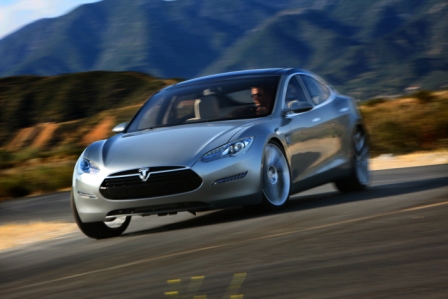“Dumping garbage in the atmosphere and no one is paying for the garbage collection” is how ex-physicist-turned-serial-entrepreneur Elon Musk described current public attitudes towards carbon dioxide emissions in an electrifying talk at the Sheldonian in Oxford.

He considers the moment when the Tesla Model S won the coveted 2013 Motor Trend Car of the Year award to be pivotal for renewable transport, because it showed the public for the first time that electric cars could outperform traditional combustion vehicles. The biggest barrier to the commercialisation of electric cars, he says, is the price. With regards to energy storage capacity however, Musk is confident that current battery technology is sufficient for the deployment of electric cars on a massive scale. Lithium Ion battery performance improves at a rate of 8-9% per year, but Musk believes that a breakthrough in electric vehicle technology could come from supercapacitors made with graphene electrodes. He estimates that battery energy density would need to at least double in order to power an electric jet plane, which he says could be one of his future projects. Also in the works for Musk is the creation of what he calls the “fifth mode of transportation”, the “Hyperloop”, a mysterious “cross between a train and Concorde” which he claims will be able to make the trip from San Francisco to Los Angeles in just 30 minutes.
Overall, while he believes that a mix of renewable sources, alongside cleaner nuclear power, could help to pave a way away from fossil fuels in the short term, Musk is adamant and optimistic that the future of energy generation will be solar power.
Food for thought: In the Q&A session, the overall cheerful tone was momentarily disrupted by a highly pertinent question: how will the advent of cheap shale gas affect the willingness of the public to switch to renewable energy? For more information on the shale gas and fracking, see our report.
